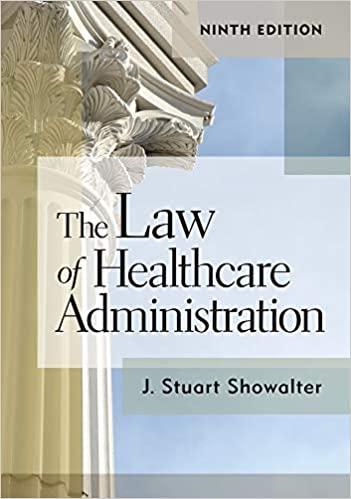This appeal by Barnes Hospital involves taxation of Queeny Tower, a 17-story building connected to, used and
Question:
This appeal by Barnes Hospital involves taxation of Queeny Tower, a 17-story building connected to, used and owned by Barnes Hospital for the tax-exempt purposes of treating patients and providing them with care and services.
Washington University Medical School, whose teaching facilities are located within the Barnes Hospital complex and whose faculty members comprise the medical staff of the hospital, leases Queeny Tower from Barnes. The parttime faculty subleases offices in Queeny Tower from Washington University for use in their private practice as well as for use in their teaching, research and Barnes Hospital functions.
The sole question raised is whether property owned by a tax exempt hospital and leased to the medical school for use by its faculty may be taxed where its part-time faculty members, also engaged in limited private practice, maintain their offices therein. [In a 1979 case] the Supreme Court [of Missouri] stated that property must meet the following provisions . . . in order to qualify for tax exemption:
(1) [the property] must be actually and regularly used exclusively for purposes purely charitable as ‘charity’ is defined in [a 1945 case]; (2) it must be owned and operated on a not-for-profit basis;
and (3) the dominant use of the property must be for the benefit of an indefinite number of people and must directly or indirectly benefit society generally......
Discussion Questions
a. How can the Greater Anchorage (Alaska) and Barnes Hospital (Missouri) courts take two nearly identical tax laws, apply them to situations with virtually identical facts, and arrive at opposite conclusions? Are their decisions fair?
b. Which of the two interpretations do you find more persuasive?
c. Would Barnes Hospital have been decided differently if the property in question had been owned by a for-profit company but leased to the hospital for the same purposes?
d. What if a parking garage with daily or hourly fees and used by employees, patients, families, and visitors were located on a parcel of land owned by and adjacent to the hospital property? Would that use be exempt in Alaska or Missouri? Would it matter who accrued the revenue from the parking garage or what fees were charged? Does your answer change if the garage could also be used by patrons of local businesses that are not related to the hospital?
Step by Step Answer:






